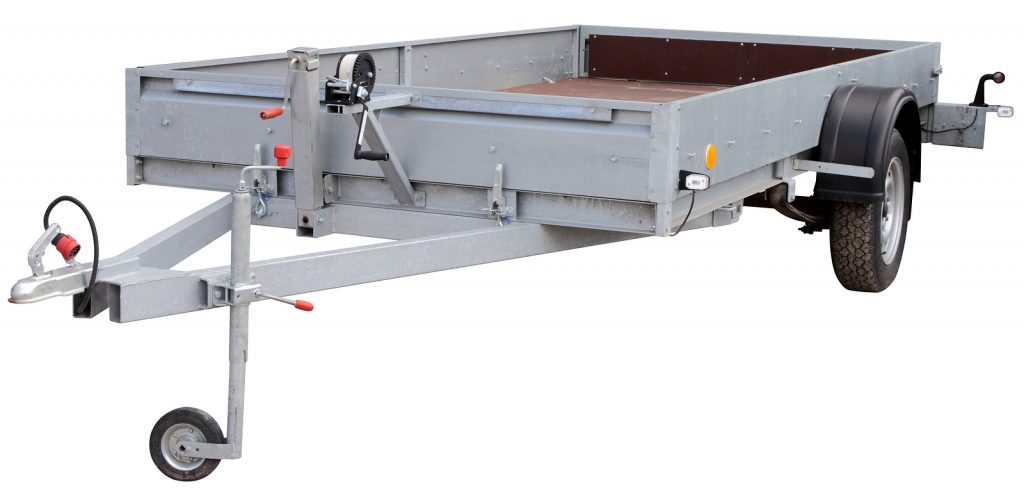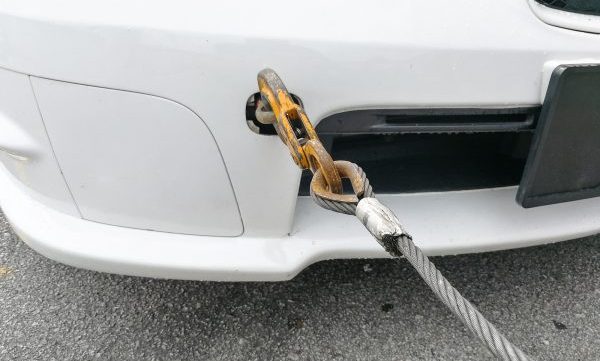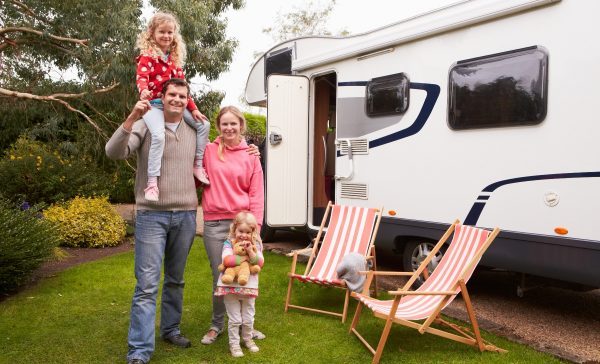When it comes to safe towing, the most important factor is knowledge. And part of this knowledge is knowing your tow weights. This includes the weight of your load, the capacity of your towing vehicle, and your towing trailer’s tongue weight. Most experienced towers are familiar with their load weight and capacities, but many tend to overlook tongue weight, which is equally important as the rest.
Continue reading for a brief explanation of these weights, with a primary focus on tongue weight.

What is Tongue Weight?
Tongue weight is the downward force or pressure the trailer puts on the back of the towing vehicle (specifically on the ball by the trailer coupler). Why is this weight measurement important? Well, too much weight on the back of the vehicle can cause it to raise in the front, thus making the rear brakes work too hard. Too little weight can cause the trailer and vehicle to be unleveled, which is dangerous while taking turns or driving at high speeds.
Tongue weight should never be more than 15% of the total trailer weight, including the weight of its cargo. This weight calculation is referred to as “gross trailer weight”, which is the same as “gross vehicle mass”, or “GVM.” See our blog, “Towing Acronyms for Vehicle Manufacturer Specifications” to learn all the weight definitions for safe towing. For now, here are two additional towing weight definitions you need to know in order to tow a trailer safely:
➤ Gross Vehicle Weight Rating (GVWR) – The acronym, “GVWR” stands for “Gross Vehicle Weight Rating”, which refers to the maximum recommended weight of the vehicle or trailer when it is fully loaded in adherence to the manufacturer’s recommendation.
➤ Gross Combined Weight Rating (GCWR) – The acronym, “GCVWR” stands for “Gross Combined Vehicle Weight Rating”, which refers to the combined weight of a trailer and the towing vehicle, including all passengers, as well as, fuel, equipment, and the cargo on the trailer.
Unsure of Your Towing Weight Capacities?
If you are not sure what your weight capacities are for your trailer and towing vehicle, refer to the owners’ manual for both. See our blog, “What is a Compliance Certification Label and Where is it on My Car?” to learn more about the importance of calculating these figures. If you need to replace a lost owners’ manuals for your trailer and/or vehicle, you can download them online, sometimes for free.
Need Professional Towing?

Call Zore’s Inc. at 317-247-8484 for friendly 24 hour towing in Central Indiana. We open a family-owned and operated business for 90 years, so you can trust us for prompt and professional service. We are open 24 hours a day, seven days a week, and 365 days a year, so our certified tow truck operators can be there for you anytime, any day! Request free estimates, anytime.


